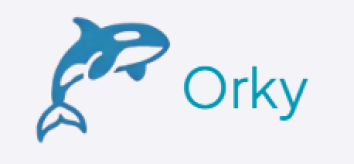Field AI is transforming how robots interact with the real world. We are building risk-aware, reliable, and field-ready AI systems that address the most complex challenges in robotics, unlocking the full potential of embodied intelligence. We go beyond typical data-driven approaches or pure transformer-based architectures, and are charting a new course, with already-globally-deployed solutions delivering real-world results and rapidly improving models through real-field applications.
About the Job
Field AI is seeking a passionate robotics software engineer to play a vital role in the development of advanced sensor calibration algorithms. In this role, you will work with a variety of sensors used for robot perception, such as camera, LiDAR and IMU, and focus on designing and optimizing workflows for intrinsic, extrinsic and temporal calibration methods in online and offline settings. The ideal candidate will not only have a deep understanding of sensor models and calibration algorithms but also the ability to deliver high-quality, maintainable production code. Your contribution is essential to help us reliably deliver the products to customers and ensure our continued growth and value.
What You Get To Do
• Develop and refine sensor calibration workflows for various sensor modalities (e.g., LiDAR, cameras, IMUs), including intrinsic, extrinsic and temporal calibration in online and offline settings.
• Design and implement scalable systems to manage and process large sensor datasets for calibration purposes, ensuring high reliability and performance.
• Implement and optimize algorithms in C++ and Python, maintaining a clean and organized code base.
• Explore and integrate emerging technologies and tools to enhance sensor calibration workflows.
• Collaborate with cross-functional teams to meet project-specific documentation requirements and deliverables.
The Extras That Set You Apart:
• Ph.D. in Computer Science, Engineering, or a related field.
• Research experience with publications in top-tier conferences or journals related to robotics, computer vision or machine vision.
• Familiarity with factory-level calibration procedures and tooling for high-volume product lines (e.g., drones, autonomous vehicles, AR/VR devices).
• Work experience leading or mentoring a dedicated sensor calibration team in a high-throughput R&D or production environment.
• Hands-on experience calibrating hundreds of camera intrinsics or camera-LiDAR systems at scale, including automated or semi-automated workflows.
